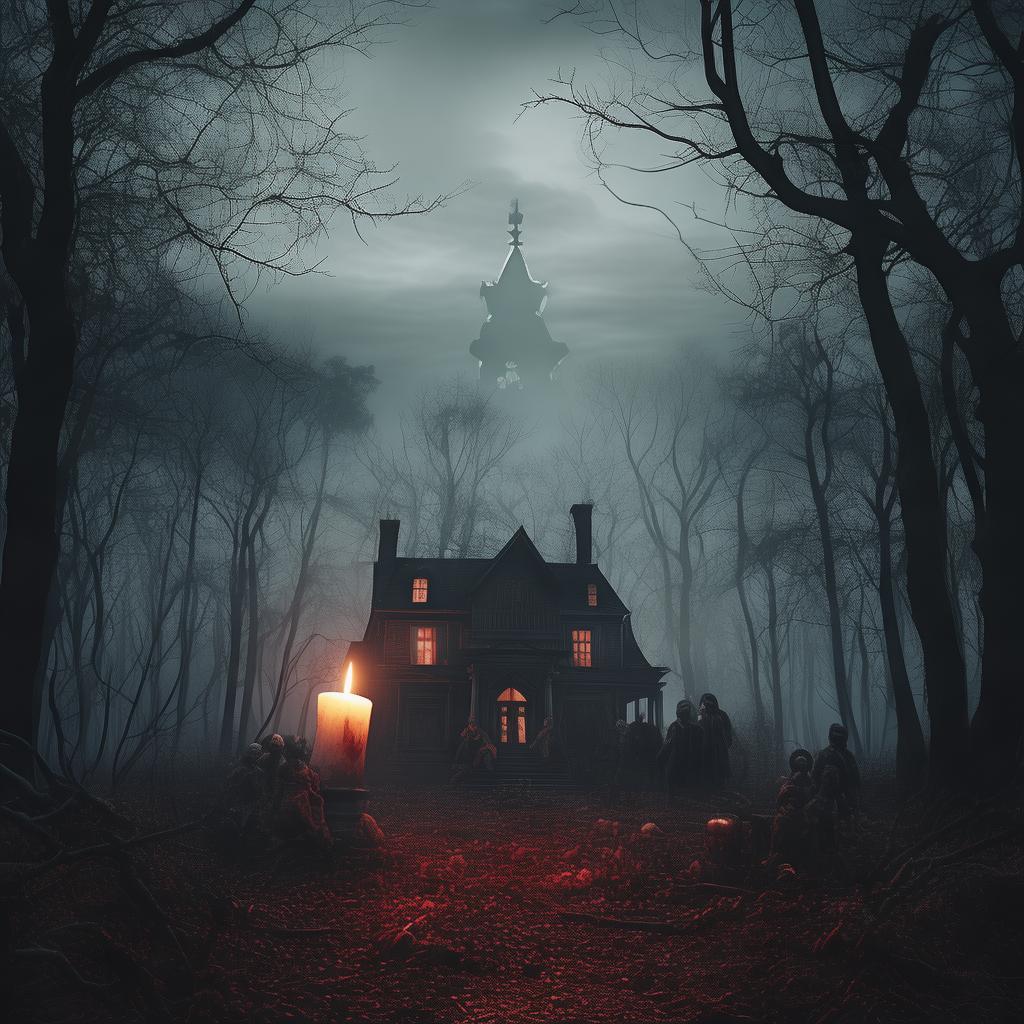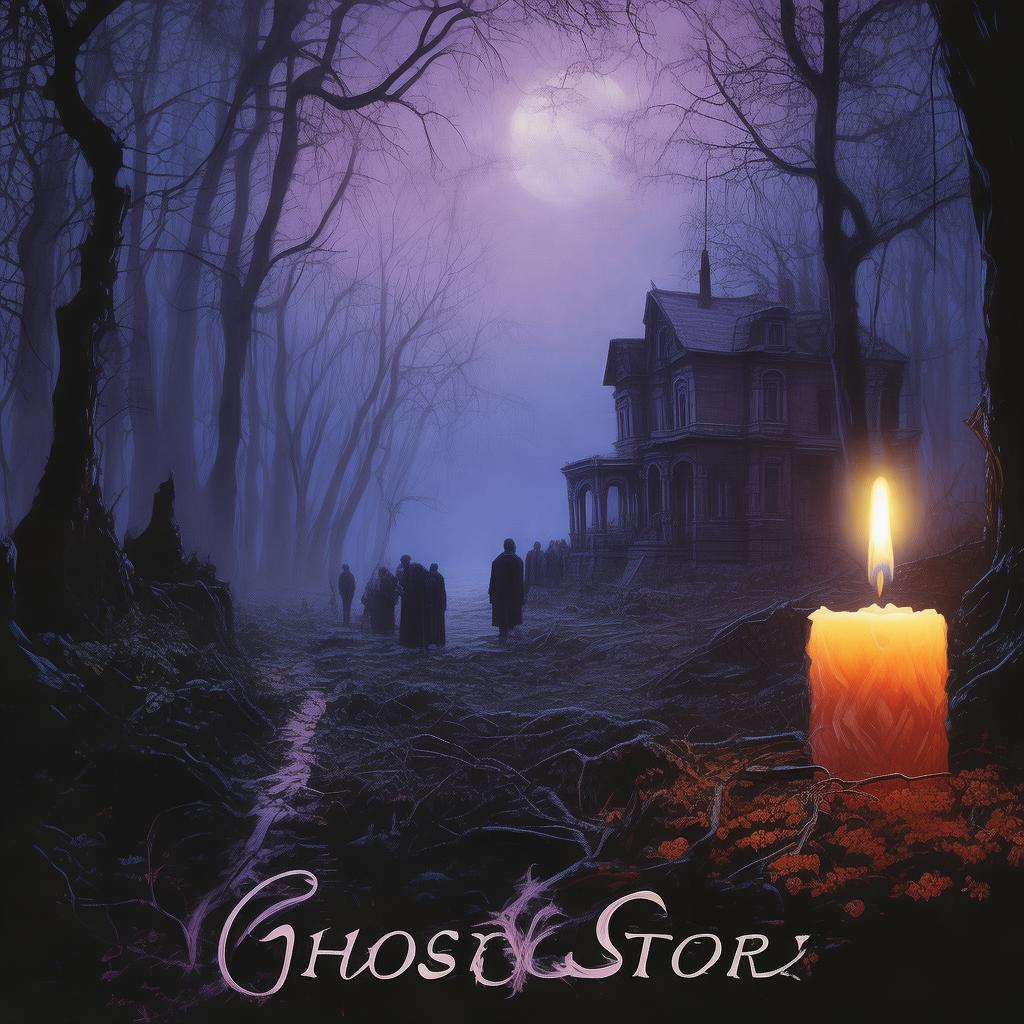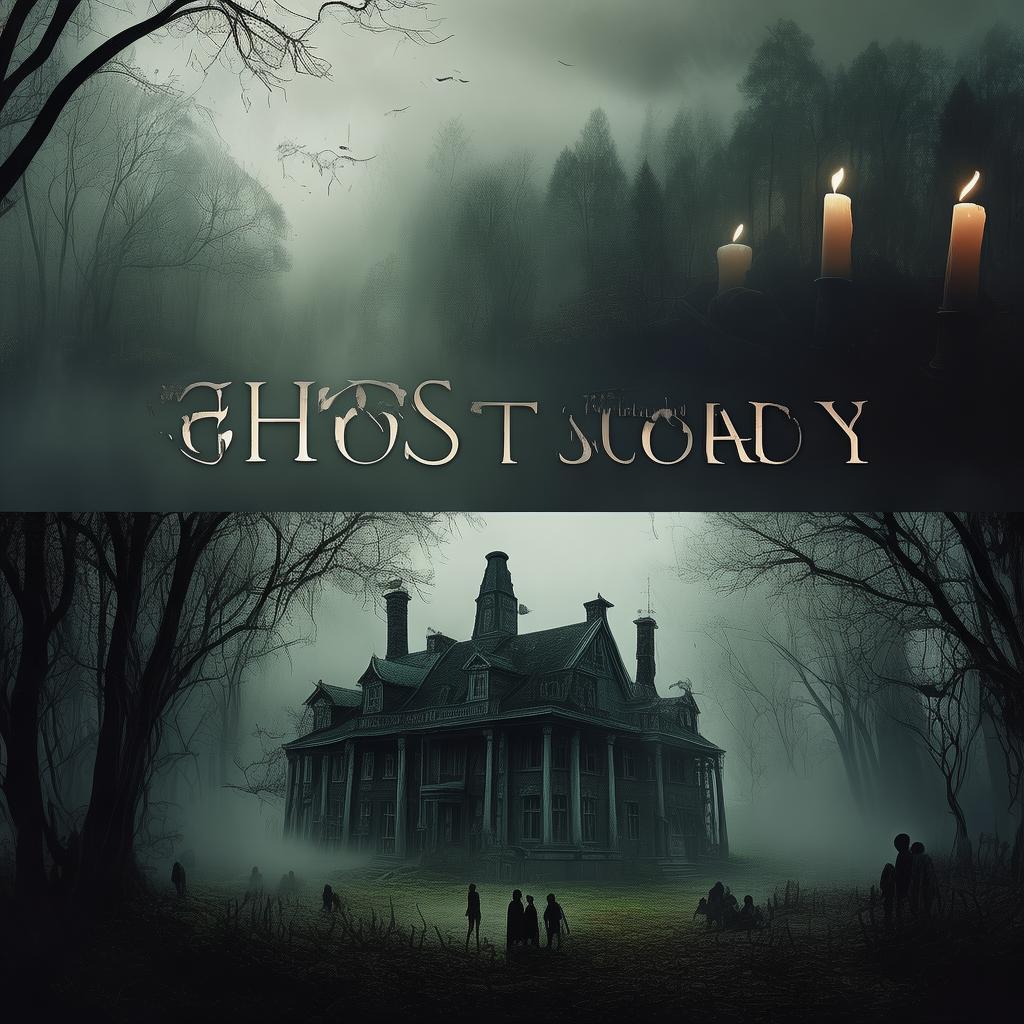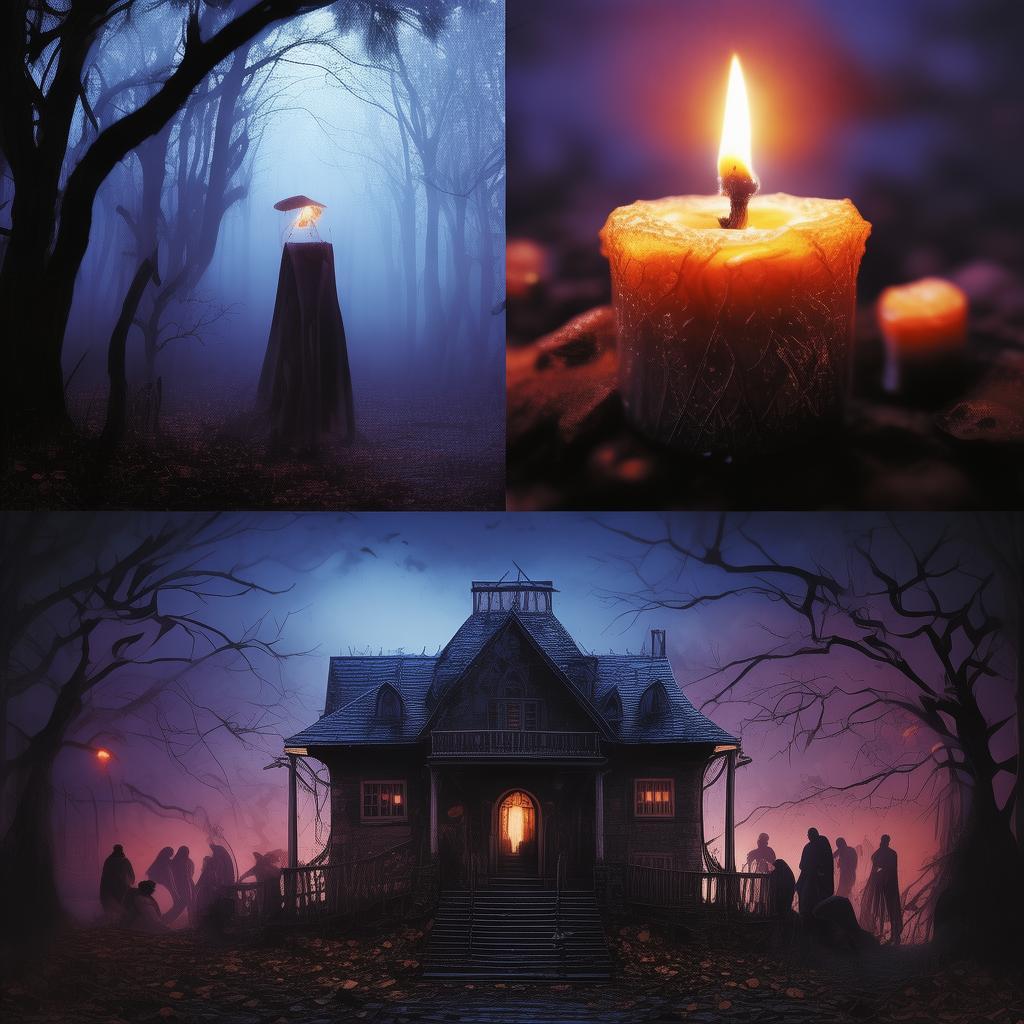The Phantom's Lament: A Symphony of Shadows and Souls
In the heart of an old, forgotten opera house, nestled between the whispering streets of a city that had long since lost its luster, there lived a young conductor named Eamon. His life was a melody of quiet solitude and unfulfilled dreams, for he believed that the true art of music lay not in the applause of the crowd, but in the harmony of souls that resonated through the air.
One stormy night, as the rain lashed against the windows of his modest apartment, Eamon received an unusual package. It was a worn-out, leather-bound score, its edges frayed and its pages yellowed with age. The envelope was devoid of a return address, and the name inscribed upon it was as cryptic as the music itself: "The Cursed Symphony."
Intrigued, Eamon set the score upon his music stand. The moment he began to play, a chilling melody unfurled from his piano, a sound that seemed to seep through the very walls of his apartment. It was the voice of a chorus, sung in a language long forgotten, a language that resonated with the essence of tragedy and the yearning for redemption.
The music was haunting, a ghostly siren call that pulled Eamon deeper into its spell. He spent the next few days poring over the score, each note a story, each measure a soul. He discovered that the symphony was the work of a long-dead composer, a man who had fallen into despair after the death of his beloved. The symphony was his final act of love, a testament to the beauty that could be found in the depths of despair.
As Eamon played the symphony, he felt the presence of something otherworldly. It was as if the music itself was a vessel, carrying the spirits of those who had suffered and died in love's embrace. He saw visions of young lovers, their eyes filled with unspoken words, their lips moving in silent laments. He saw the sorrowful faces of the departed, their lives cut short by fate's cruel hand.
Eamon knew that he was not alone in his discovery. The music had a life of its own, and it was calling to him, demanding his attention. He felt a sense of urgency, as if the symphony were a ticking clock, counting down to a moment of truth.
Determined to uncover the symphony's secrets, Eamon embarked on a journey that would lead him through the darkest corners of the city. He visited the opera house, now a decrepit shell of its former glory, and there, amidst the dust and decay, he found the answers he sought.
The composer's story was one of passion and despair, of a man who had given his life to the creation of a work that would outlive him. But as he had poured his heart into the music, he had also cursed it, binding the spirits of those who had suffered the same fate as himself.
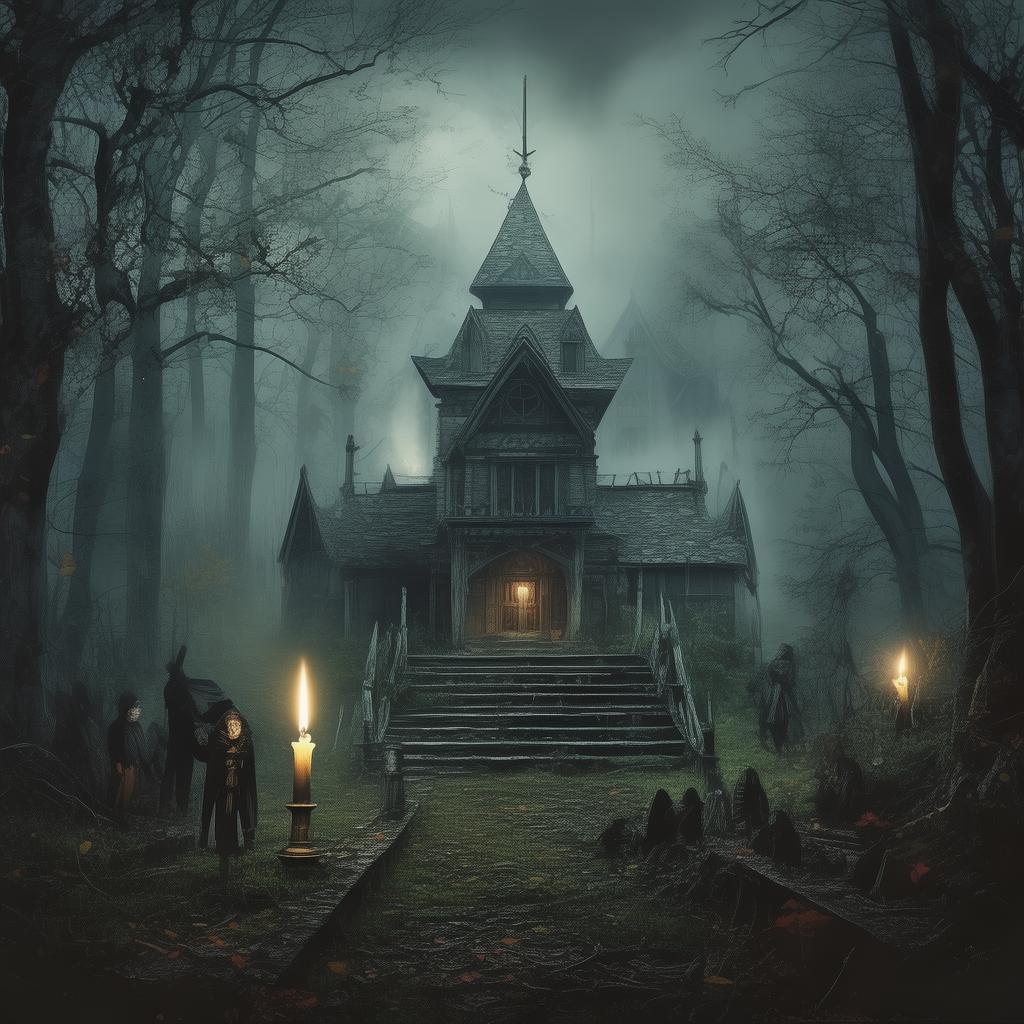
Eamon realized that he was the key to unlocking the curse. He had to perform the symphony, but not in the way it had been intended. He had to give it life, not through performance, but through love and understanding.
As the night of the performance approached, Eamon prepared himself. He knew that the symphony would demand a price, but he was willing to pay it. He believed that the music, and the spirits it contained, were worth any sacrifice.
The night of the performance was electric. Eamon stood before the empty seats of the opera house, his heart pounding with a mix of fear and anticipation. He began to play, his fingers dancing across the keys with a grace that belied the weight of his burden.
The music filled the room, a haunting siren call that seemed to echo through the very fabric of time. The spirits of the departed began to materialize, their forms shimmering in the dim light. They surrounded Eamon, their eyes filled with gratitude and sorrow.
As the symphony reached its climax, Eamon felt the weight of the curse lifting. The spirits of the departed were released, their souls finding peace at last. The music ended, and the room was silent, save for the faint, lingering echo of the symphony.
Eamon stood alone, his heart heavy with the burden he had carried. But he also felt a sense of relief, a release from the chains that had bound him. He knew that he had done what he had set out to do, and that the symphony had found its true purpose.
The next morning, Eamon woke to a new beginning. The opera house had been restored, and the symphony had been performed to a full house, the music filling the air with a sense of beauty and redemption.
Eamon's journey had been long and arduous, but he had found his purpose. He had become the guardian of the cursed symphony, a man who had unlocked the souls of the departed and given them peace. And as he played the piano, the music flowing through his fingers, he knew that he had found his true calling.
The Phantom's Lament had found its voice, and Eamon had found his soul's melody.
✨ Original Statement ✨
All articles published on this website (including but not limited to text, images, videos, and other content) are original or authorized for reposting and are protected by relevant laws. Without the explicit written permission of this website, no individual or organization may copy, modify, repost, or use the content for commercial purposes.
If you need to quote or cooperate, please contact this site for authorization. We reserve the right to pursue legal responsibility for any unauthorized use.
Hereby declared.



